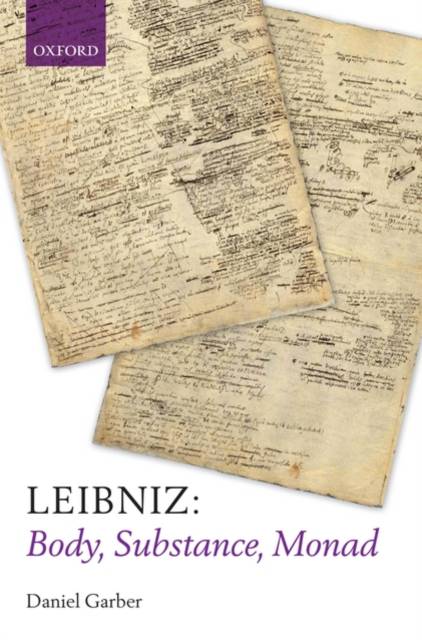
Je cadeautjes zeker op tijd in huis hebben voor de feestdagen? Kom langs in onze winkels en vind het perfecte geschenk!
- Afhalen na 1 uur in een winkel met voorraad
- Gratis thuislevering in België vanaf € 30
- Ruim aanbod met 7 miljoen producten
Je cadeautjes zeker op tijd in huis hebben voor de feestdagen? Kom langs in onze winkels en vind het perfecte geschenk!
- Afhalen na 1 uur in een winkel met voorraad
- Gratis thuislevering in België vanaf € 30
- Ruim aanbod met 7 miljoen producten
Zoeken
Omschrijving
Daniel Garber presents an illuminating study of Leibniz's conception of the physical world. Leibniz's commentators usually begin with monads, mind-like simple substances, the ultimate building-blocks of the Monadology. But Leibniz's apparently idealist metaphysics is very puzzling: how can any sensible person think that the world is made up of tiny minds? In this book, Garber tries to make Leibniz's thought intelligible by focusing instead on his notion of body. Beginning with Leibniz's earliest writings, he shows how Leibniz starts as a Hobbesian with a robust sense of the physical world, and how, step by step, he advances to the monadological metaphysics of his later years. Much of the book's focus is on Leibniz's middle years, where the fundamental constituents of the world are corporeal substances, unities of matter and form understood on the model of animals. For Garber monads only enter fairly late in Leibniz's career, and when they enter, he argues, they do not displace bodies but complement them. In the end, though, Garber argues that Leibniz never works out the relation between the world of monads and the world of bodies to his own satisfaction: at the time of his death, his philosophy is still a work in progress.
Specificaties
Betrokkenen
- Auteur(s):
- Uitgeverij:
Inhoud
- Aantal bladzijden:
- 452
- Taal:
- Engels
Eigenschappen
- Productcode (EAN):
- 9780199566648
- Verschijningsdatum:
- 28/09/2009
- Uitvoering:
- Hardcover
- Formaat:
- Genaaid
- Afmetingen:
- 160 mm x 234 mm
- Gewicht:
- 816 g

Alleen bij Standaard Boekhandel
+ 435 punten op je klantenkaart van Standaard Boekhandel
Beoordelingen
We publiceren alleen reviews die voldoen aan de voorwaarden voor reviews. Bekijk onze voorwaarden voor reviews.









